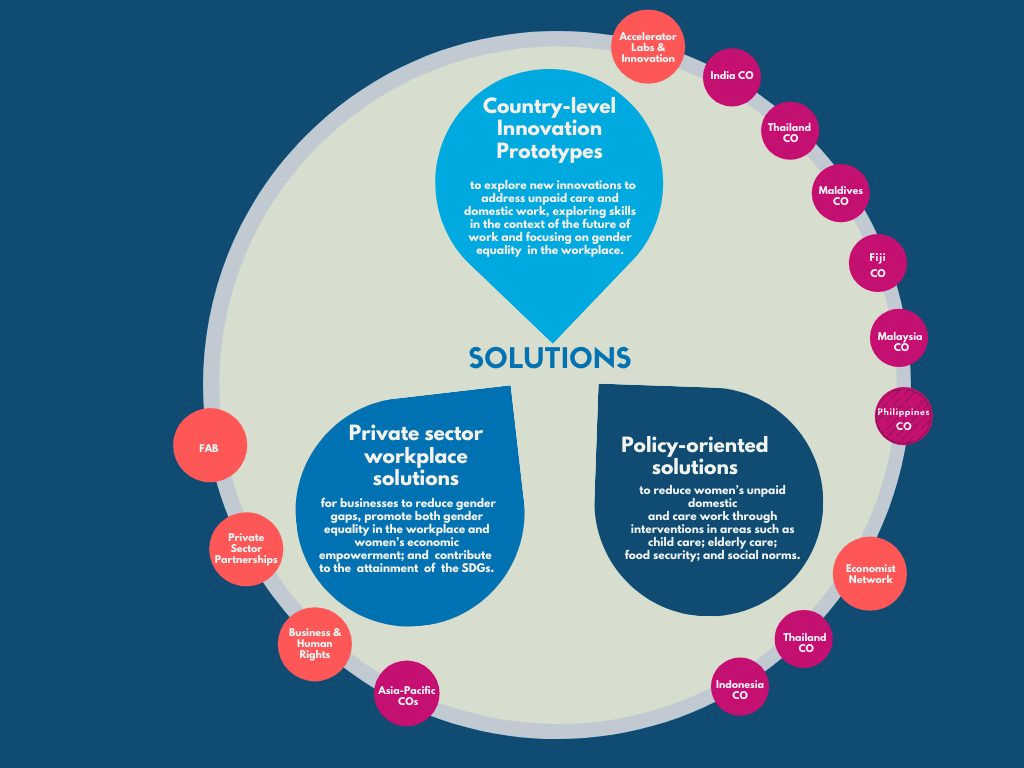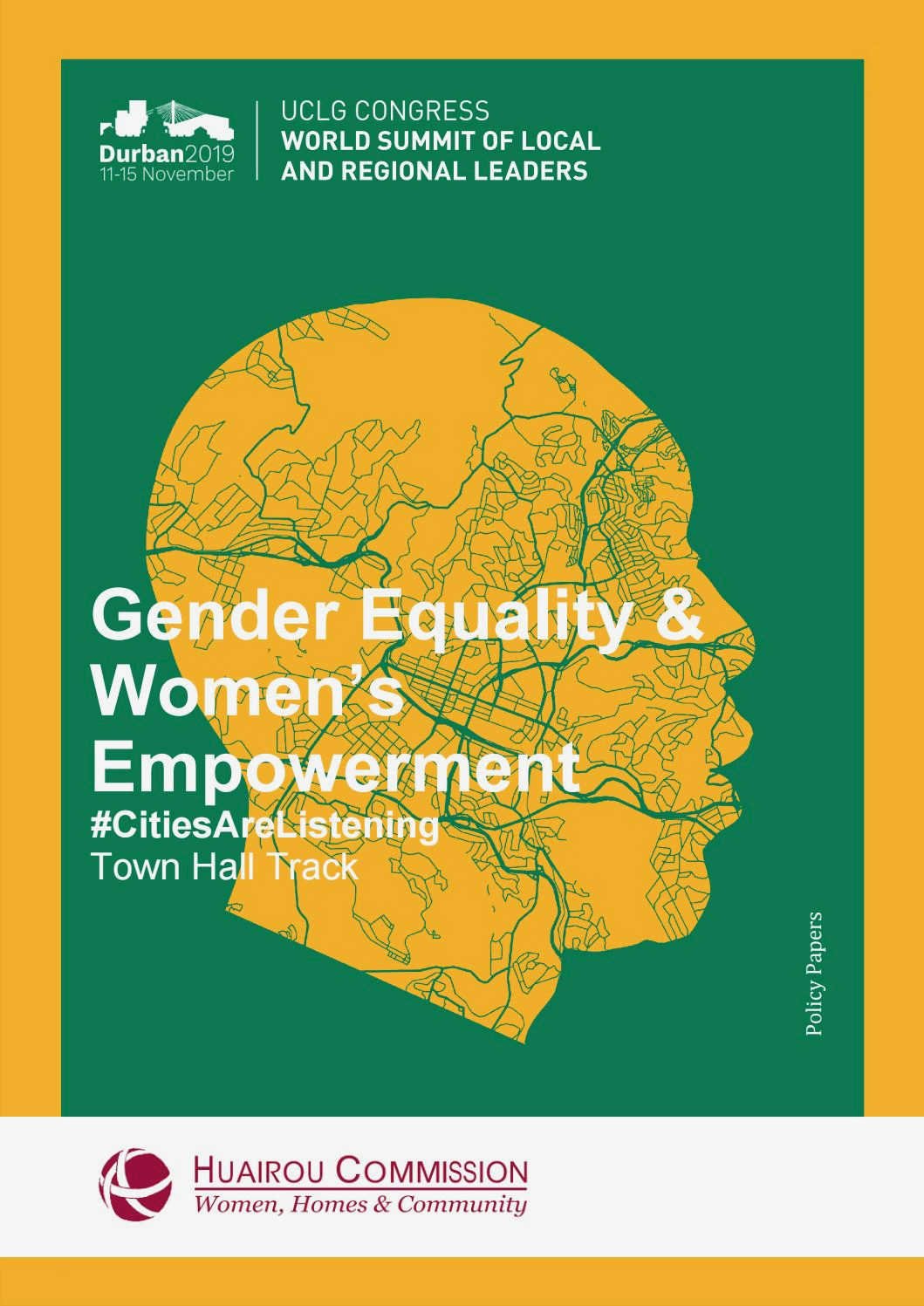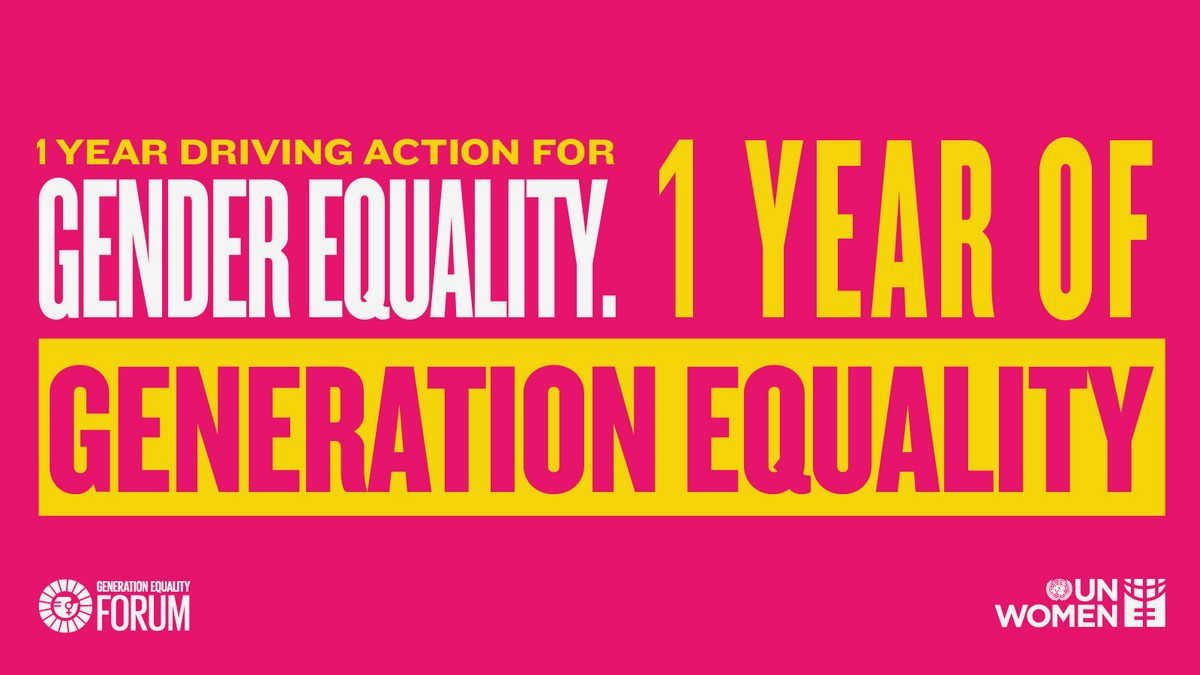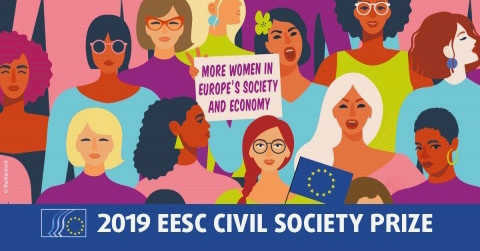Gender inequality remains a persistent challenge in societies around the world. Women continue to face barriers that limit their rights, opportunities, and full participation in social, political, and economic spheres. However, civil society has emerged as a strong force in driving gender equality by empowering women and advocating for their rights.
Civil society refers to the organizations, groups, and individuals that are independent of the government and work towards promoting social change. It plays a crucial role in advancing gender equality by addressing underlying systemic issues and working towards creating an inclusive and equitable society for all. Through their activism, advocacy, and capacity-building initiatives, civil society organizations are helping to empower women and dismantle barriers that prevent them from achieving their full potential.
One of the key ways civil society is driving gender equality is by amplifying women’s voices and advocating for their inclusion in decision-making processes. Women have long been underrepresented in positions of power and decision-making, and civil society is working to change this by pushing for greater gender parity in political, economic, and social institutions. By creating platforms for women to speak out and be heard, civil society is not only empowering individual women but also transforming systems and structures that perpetuate gender inequality.
Civil society is also playing a crucial role in providing support and resources to women who have experienced discrimination, violence, or other forms of gender-based abuse. By offering shelters, counseling services, legal aid, and other forms of assistance, civil society organizations are enabling women to escape harmful situations, rebuild their lives, and access justice. This support is essential in ensuring that women are able to exercise their rights and live free from violence and discrimination.
Empowering Women Through Civil Society
In today’s world, civil society plays a crucial role in driving gender equality and empowering women. Civil society organizations, including non-governmental organizations, grassroots movements, and advocacy groups, work tirelessly to address the challenges faced by women and promote their rights and opportunities.
One way civil society empowers women is by providing them with education and training opportunities. Many organizations offer workshops, seminars, and skills-building programs that equip women with the knowledge and tools they need to succeed in various fields, such as entrepreneurship, leadership, and technology. These initiatives not only enhance women’s capabilities, but also boost their self-confidence and enable them to break through societal barriers.
Civil society promotes women’s economic empowerment by advocating for equal pay and working conditions. Organizations engage in campaigns, awareness-raising activities, and lobbying efforts to push for gender equality in the workplace. They also support women in accessing financial resources, starting their own businesses, and becoming economically independent. By empowering women economically, civil society helps them overcome financial constraints and achieve self-reliance.
Another aspect of empowering women through civil society is addressing gender-based violence and discrimination. Organizations work towards creating safe spaces for women and ensuring their rights are protected. They provide support services, legal aid, and counseling to survivors of gender-based violence. Additionally, civil society organizations play a crucial role in advocating for policy changes and legal reforms to eliminate discriminatory practices and laws that perpetuate violence against women.
Civil society also fosters women’s political participation and representation. By encouraging women to engage in political processes, civil society organizations promote gender-responsive governance and decision-making. They run awareness campaigns, leadership programs, and mentorship initiatives to empower women to take on leadership roles and actively participate in shaping policies that affect their lives.
In conclusion, civil society plays a pivotal role in empowering women and driving gender equality. Through education and training, economic empowerment, addressing violence and discrimination, and promoting political participation, civil society organizations contribute to creating a more inclusive and equitable society for women. It is crucial to continue supporting and strengthening civil society efforts to ensure that women have equal opportunities and rights in all aspects of their lives.
The Role of Non-Governmental Organizations
Non-Governmental Organizations (NGOs) play a vital role in driving gender equality and empowering women in society. These organizations work alongside governments and other stakeholders to advocate for women’s rights, provide support and resources, and implement programs that address the unique challenges faced by women.
Advocacy: NGOs are at the forefront of advocating for women’s rights and gender equality. They work to raise awareness about the issues women face, challenge discriminatory laws and practices, and push for policy changes that promote equal opportunities for women in all areas of life.

Support and Resources: NGOs provide essential support and resources to women, especially those in marginalized communities. This includes access to education, healthcare, legal aid, and economic opportunities. By addressing these basic needs, NGOs help empower women and enable them to become active participants in society.
Program Implementation: NGOs implement various programs that specifically target women’s empowerment. These programs can include skills training, leadership development, entrepreneurship support, and access to microfinance. By providing these opportunities, NGOs enable women to gain the necessary skills and resources to improve their socio-economic status and contribute to the development of their communities.
Capacity Building: NGOs also play a crucial role in building the capacity of women and women’s organizations. They provide training and mentorship programs that help women develop their leadership and organizational skills, enabling them to effectively advocate for their rights and take on leadership roles in their communities.
Partnerships and Collaboration: NGOs often work collaboratively with other stakeholders, including governments, international organizations, and the private sector, to address gender inequality. By forming partnerships, NGOs can leverage resources and expertise to implement sustainable programs and initiatives that drive lasting change.
In conclusion, Non-Governmental Organizations are key players in driving gender equality and women’s empowerment. Through their advocacy, support, program implementation, capacity building, and collaborative efforts, NGOs contribute significantly to creating a more equal and inclusive society for all.
Grassroots Movements for Gender Equality
Grassroots movements play a crucial role in promoting and driving gender equality. These movements are made up of individuals and organizations within local communities who are committed to fighting for women’s rights and empowering women to become agents of change in society.
One example of a grassroots movement for gender equality is the Women’s Rights Association, which operates at the community level to raise awareness about gender discrimination and advocate for gender equality in various areas of life. They organize workshops, forums, and campaigns to challenge and change societal norms and attitudes that perpetuate gender inequality.
Another grassroots movement is the Girls’ Education Network, which focuses on promoting girls’ education and empowering young girls to pursue their dreams and aspirations. They provide mentorship programs, scholarships, and support networks to ensure that girls have access to education and the tools they need to succeed in their chosen fields.
Grassroots movements for gender equality also often work on changing laws and policies to ensure the protection of women’s rights. For example, the Women’s Legal Collective advocates for legal reforms that address issues such as domestic violence, sexual harassment, and gender-based discrimination. They work with policymakers and lawmakers to draft and pass legislation that protects women’s rights and holds perpetrators accountable.
Furthermore, grassroots movements engage in community organizing and mobilization to address the specific needs and challenges faced by marginalized women, such as women in rural areas, indigenous women, and migrant women. They provide support in areas such as access to healthcare, economic opportunities, and social services, striving to create an inclusive society where all women have equal rights and opportunities.
In conclusion, grassroots movements for gender equality serve as catalysts for change, empowering women and advocating for their rights at the local level. Through their efforts, they challenge societal norms, promote education, advocate for legal reforms, and address the specific needs of marginalized women. Their work is essential in driving progress towards gender equality and creating a more inclusive and equitable society for all.
Promoting Women’s Rights at the Local Level
Engaging Local Communities
At the local level, civil society organizations play a crucial role in promoting women’s rights and driving gender equality. These organizations work directly with local communities to raise awareness about gender issues and advocate for policy changes that prioritize women’s rights. By engaging with community members, civil society organizations are able to address the unique challenges faced by women in their specific contexts and develop tailored solutions.
One way civil society organizations promote women’s rights is through grassroots movements and community-driven initiatives. These initiatives involve local women coming together to identify and address the barriers they face, such as limited access to education or healthcare, and working collectively to advocate for change. Engaging local communities empowers women to become agents of change in their own lives and ensures that their voices are heard in decision-making processes.
Capacity Building and Empowerment
In addition to community engagement, civil society organizations also focus on capacity building and empowerment of women at the local level. They provide training programs and workshops to enhance women’s skills and knowledge, enabling them to participate fully in social, economic, and political spheres. These programs may cover topics such as leadership development, financial literacy, and legal rights awareness.
By equipping women with the necessary tools and knowledge, civil society organizations help them become more independent and self-reliant. This empowerment not only enhances women’s confidence and self-esteem but also enables them to challenge societal norms and stereotypes that perpetuate gender inequality. Through increased awareness and education, women are better able to advocate for their rights and contribute to the development of their communities.
Collaboration and Networking
Promoting women’s rights at the local level also requires collaboration and networking among civil society organizations, government bodies, and other stakeholders. By forming partnerships and alliances, these organizations can pool their resources, expertise, and influence to create a more effective and coordinated approach to promoting gender equality.
Collaboration also allows for knowledge sharing and learning from each other’s experiences, leading to improved strategies and outcomes. Through these networks, civil society organizations can amplify their collective voice and advocate for policy changes that address the specific needs of women in their local communities.
Overall, promoting women’s rights at the local level requires a multifaceted approach that engages local communities, builds women’s capacities, and facilitates collaboration among different actors. Civil society organizations play a vital role in driving these efforts and creating lasting change in the pursuit of gender equality.
Advancing Gender Equality in Education
Education plays a crucial role in advancing gender equality. It is through education that girls and women gain knowledge, skills, and confidence to challenge gender norms and stereotypes, fight for their rights, and pursue their dreams. However, in many parts of the world, girls still face significant barriers to accessing quality education.
Policies and Programs
Efforts to advance gender equality in education involve implementing policies and programs that promote equal opportunities for girls and boys. These include affirmative action measures, such as scholarships and quotas, that aim to increase girls’ enrollment and retention in schools, particularly in areas where cultural or economic barriers exist.
Strategies are also implemented to eliminate gender biases in curricula and teaching materials, ensuring that girls and boys have equal access to a broad range of subjects, including science, technology, engineering, and mathematics (STEM) fields. Moreover, comprehensive sexuality education is provided to equip girls with knowledge and skills to make informed decisions about their bodies, reproductive health, and relationships.
Empowering Teachers
Empowering teachers is essential in advancing gender equality in education. Educators need to be trained on gender-responsive teaching methodologies, classroom management strategies, and gender-sensitive assessment practices. This enables them to create inclusive and safe learning environments where girls and boys can thrive academically and socially, free from discrimination and violence.
Furthermore, it is crucial to recruit and retain female teachers, as they serve as role models for girls and can provide mentorship and support. By increasing the number of female teachers, girls are more likely to see themselves represented in leadership positions, breaking gender stereotypes and inspiring them to pursue higher education and careers.

Partnerships and Collaboration
Advancing gender equality in education requires strong partnerships and collaboration between civil society organizations, governments, and the private sector. These partnerships can enable the sharing of best practices, the pooling of resources, and the coordination of efforts to address the underlying causes of gender inequality in education.
Civil society organizations play a pivotal role in advocating for girls’ right to education, monitoring the implementation of policies, and holding governments accountable for their commitments. By working together, these stakeholders can create a supportive environment that empowers girls and women to achieve their full potential through education.
In conclusion, advancing gender equality in education is crucial for achieving sustainable development and empowering girls and women worldwide. Through the implementation of inclusive policies, the empowerment of teachers, and strong partnerships, we can create a world where all individuals have equal access to quality education, regardless of their gender.
Breaking Gender Stereotypes in Schools
Gender stereotypes have long been ingrained in our society, shaping the expectations and roles of individuals based on their gender. Unfortunately, these stereotypes can be particularly prevalent in schools, where young minds are still developing. However, there is a growing movement to break down these stereotypes and create a more inclusive and equal environment for all students.
Challenging Assumptions: One of the key ways to break gender stereotypes in schools is to challenge assumptions about what girls and boys can do. Teachers and educators can play a crucial role in this by providing equal opportunities for all students, regardless of their gender. This means ensuring that girls have the same access to science and math courses and encouraging boys to explore their interests in the arts and humanities.
Encouraging Dialogue: Open and honest dialogue about gender stereotypes is another important step in breaking them down. This can be done through classroom discussions, guest speakers, or even workshops focused specifically on gender equality. By creating a space for students to voice their thoughts, concerns, and experiences, schools can help foster understanding and challenge harmful stereotypes.
Expanding Representation: Representation is crucial in breaking down gender stereotypes. When students see a diverse range of role models who defy traditional gender norms, it challenges their preconceived ideas about what girls and boys can achieve. This can be achieved through diverse reading materials, showcasing successful individuals who have broken gender barriers, and using inclusive language and imagery in school materials.
Creating Safe Spaces: It is important to create safe spaces within schools where students feel comfortable expressing and exploring their gender identity. Schools can establish support groups or clubs that specifically address gender issues and provide a sense of belonging for students who may feel marginalized. These safe spaces can also serve as platforms for advocacy and activism, further breaking down gender stereotypes.
Continued Efforts: Breaking gender stereotypes in schools is an ongoing process that requires continued effort and commitment. It is crucial for schools to regularly review their policies and practices to ensure they are inclusive and equitable. By actively challenging and addressing gender stereotypes within the educational system, we can empower future generations to truly embrace equality and create a more inclusive society.
Girls’ Empowerment Programs
Girls’ empowerment programs play a crucial role in promoting gender equality and empowering young women to reach their full potential. These programs provide girls with the necessary tools, resources, and support to overcome barriers and take control of their lives. They aim to address the unique challenges that girls face, such as gender-based violence, limited access to education, and discriminatory cultural norms and practices.
Education
One key aspect of girls’ empowerment programs is promoting access to quality education. These programs work to ensure that girls have equal opportunities to attend school, stay in school, and receive a holistic education that prepares them for future success. They may provide scholarships, school supplies, and mentorship programs to help overcome financial and societal barriers that often prevent girls from accessing education.
Life Skills Training
Girls’ empowerment programs also focus on equipping girls with essential life skills that will enable them to navigate challenges and make informed decisions. These programs may provide training in critical thinking, leadership, communication, and problem-solving skills. By empowering girls with these skills, they are better equipped to advocate for their rights, make healthy choices, and contribute positively to their communities.
Health and Well-being
Another important aspect of girls’ empowerment programs is addressing the specific health needs and challenges that girls face. These programs may provide information and resources on sexual and reproductive health, menstrual hygiene management, and nutrition. By promoting the health and well-being of girls, these programs enable them to lead healthy and fulfilling lives, free from preventable health issues.
Girls’ Groups and Networks
Girls’ empowerment programs often create safe spaces for girls to come together, share experiences, and support each other. These programs may establish girls’ groups and networks where girls can discuss issues that are important to them, build friendships, and engage in collective action. By fostering a sense of belonging and solidarity, these groups and networks empower girls to challenge societal norms, advocate for their rights, and effect positive change in their communities.
Economic Empowerment
Girls’ empowerment programs also recognize the importance of economic empowerment in achieving gender equality. These programs may provide vocational training, entrepreneurship skills, and financial literacy education to equip girls with the knowledge and resources they need to access economic opportunities. By enabling girls to become economically independent, these programs help break the cycle of poverty and empower them to make decisions that shape their own futures.
In conclusion, girls’ empowerment programs are crucial for advancing gender equality and empowering young women. These programs address the various challenges and barriers that girls face and provide them with the necessary resources and support to thrive. By investing in girls’ empowerment, we can create a more just and equitable society for all.
Economic Empowerment for Women
One of the key aspects of promoting gender equality is economic empowerment for women. Access to economic opportunities and financial resources plays a vital role in bridging gender gaps and empowering women in societies. When women have equal access to employment, education, and entrepreneurship, they can contribute to the economic development of their communities and nations.
Education and skill development: Providing women with quality education and skill development programs is crucial for their economic empowerment. By acquiring knowledge and skills, women can enter various sectors of the economy and secure better job opportunities. Governments, non-profit organizations, and civil society initiatives can work together to ensure equal access to education and skill development programs for women.
Entrepreneurship and business ownership: Encouraging women to become entrepreneurs and business owners is another important aspect of economic empowerment. By starting their own ventures, women can not only generate income for themselves but also create employment opportunities for others. Governments and organizations can provide mentorship programs, access to capital, and support networks to assist women in starting and growing their businesses.
Financial inclusion: Ensuring women’s financial inclusion is critical for their economic empowerment. Women should have access to banking services, credit, and other financial products that can help them save, invest, and grow their wealth. Governments and financial institutions can introduce policies and practices that promote financial inclusion and address the specific needs and challenges faced by women.
Equal pay and workplace policies: Addressing gender pay gaps and promoting workplace policies that support women’s rights and well-being is essential for their economic empowerment. Governments can enforce equal pay laws, promote flexible work arrangements, and provide maternity and paternity leave policies that enable women to balance their work and family responsibilities.
Support networks and mentoring: Building strong support networks and mentoring programs for women can provide them with guidance, encouragement, and opportunities for professional growth. Civil society organizations and businesses can create mentorship programs that connect women with experienced professionals who can guide and support them in their careers.
Data collection and analysis: Collecting and analyzing gender-disaggregated data is crucial for understanding the specific challenges women face in the economy and designing targeted policies and interventions. Governments, organizations, and researchers can collaborate to gather and analyze data that inform evidence-based decision-making and promote gender-responsive economic policies.

Microfinancing and Women’s Entrepreneurship
Microfinancing has played a crucial role in empowering women in entrepreneurship. By providing small loans and financial services, microfinancing institutions have enabled women to start and grow their own businesses. These loans have helped women gain financial independence and break free from traditional gender roles.
One of the main advantages of microfinancing is that it targets women who may not have access to traditional banking services. This is especially important in developing countries where women face barriers such as limited collateral or lack of documentation required by banks. Microfinancing institutions provide an alternative by offering smaller loans with flexible repayment terms.
Microfinancing has not only provided financial resources to women, but also offered training and support to help them succeed in their entrepreneurial ventures. Many microfinancing organizations provide business training programs that teach women essential skills like financial management, marketing, and business planning. These programs empower women with the knowledge and tools they need to run successful businesses.
Moreover, microfinancing has proven to have a positive impact on communities as a whole. When women are able to start their own businesses, they contribute to economic growth and job creation. Studies have shown that women are more likely to invest their income back into their families and communities, resulting in improved education and healthcare for all.
In conclusion, microfinancing has been instrumental in promoting women’s entrepreneurship and gender equality. By providing access to financial resources, training, and support, microfinancing has empowered women to break free from poverty and traditional gender roles, and has contributed to overall community development. Continued investment in microfinancing programs is crucial to drive further progress in empowering women and achieving gender equality.
Women’s Role in Sustainable Development
Women play a crucial role in sustainable development, as they are often the primary caregivers and decision-makers in their households. They have a unique perspective and understanding of community needs, and their active participation is essential for the success and longevity of sustainable development initiatives.
Empowering women is not only a matter of gender equality, but also a strategic approach to achieving sustainable development. When women have equal access to resources, education, and decision-making processes, they can contribute to the development of innovative and sustainable solutions to environmental, social, and economic challenges.

Women’s knowledge and skills are invaluable in sustainable development efforts. They possess a deep understanding of their local environment, natural resources, and traditional practices. Their expertise in sustainable agriculture, water management, and renewable energy can help communities adapt to climate change and ensure the long-term sustainability of resources.
Investing in women is investing in the future. By providing women with access to education, training, and economic opportunities, societies can empower them to become leaders and changemakers. Women can drive economic growth, poverty reduction, and social progress, while also promoting gender equality and environmental sustainability.
Collaboration between civil society, governments, and international organizations is crucial for promoting women’s role in sustainable development. By working together, they can create supportive policies, programs, and initiatives that address the unique challenges faced by women and ensure their full participation in decision-making processes.
Overall, recognizing and promoting women’s role in sustainable development is not only a matter of justice and equality, but also a fundamental requirement for achieving the sustainable future we all strive for.





